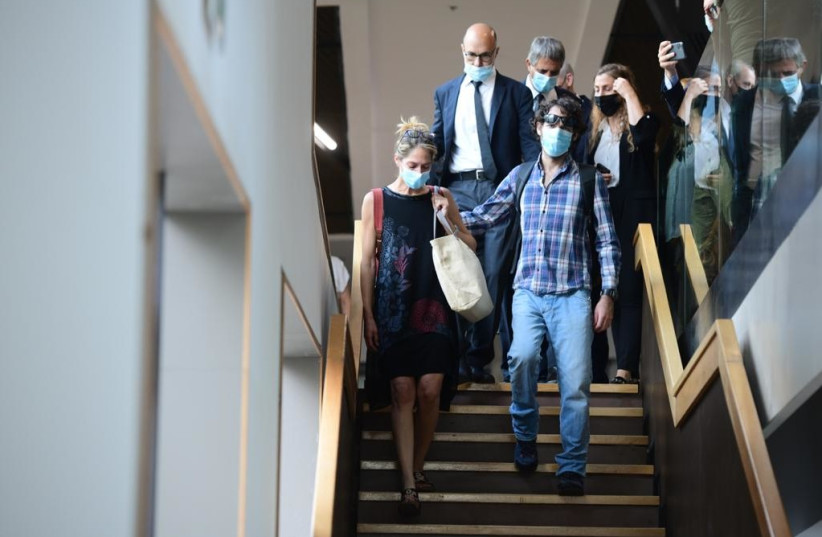In May, as little Eitan Biran was fighting for his life in a hospital in the Italian city of Turin, the whole of Italy was holding its breath.
The crash of a cable car – and the loss of 14 innocent lives, including children, and many couples who had chosen the little corner of paradise on the Lake Maggiore shores to spend a sunny Sunday together – had left everyone in Italy horrified in disbelief. When it emerged that the incident was caused by the willful tampering of the emergency brakes to cover up a malfunction, the dismay just increased.
Only one ray of hope shone in the darkness: Eitan, the sole miraculous survivor, the six-year-old whose loving, young father – who died in the crash with the boy’s mother and little brother – probably saved him by shielding him with his body as the gondola fell to the ground.
Italian politicians, celebrities and normal citizens expressed their solidarity and prayers on social media. Many sent presents to the hospital, or took part in the two fundraising campaigns started by Italian Jewish organizations to support Eitan’s future.
For this reason, people in Italy were shocked when Shmuel Peleg, Eitan’s maternal grandfather, took the boy to Israel illegally on a private flight – and they became outraged when the Peleg family depicted his action as a way to save the boy’s Jewish and Israeli identity.

Many started asking: How can religion or nationality justify uprooting from his environment such a young child who has already suffered so much – and through a kidnapping on top of it?
To make things more incomprehensible in the eyes of the Italian public was the fact that from the first terrible moments, Eitan had been receiving the care of another close relative: his father’s sister, Aya Biran.
A doctor who has been living in Italy for 17 years, Aya always showed a no-nonsense, sensible and competent approach. She asked for privacy and avoided bombastic remarks to the media.
By contrast, in the weeks before Eitan was taken to Israel, members of the Peleg family said that the child was kept “hostage” in Italy, that Aya and her family wanted to erase his Jewish identity, and that they treated the Pelegs poorly because they are Sephardi and right wing while the Birans are Ashkenazi and left wing.
Considering that Aya lived close to her late brother with her husband and two daughters, who are around Eitan’s age and attended the same school, her being assigned custody of the boy – who had lived in Italy since he was one month old – seemed only natural.
When the child was brought to Israel, the story sparked a media storm in news outlets and social media in both countries. But while people appeared divided in Israel, almost everyone in Italy expressed support for Aya and criticized the grandfather’s act.
The court’s widely reported decision to send Eitan back to the city of Pavia, where he had lived with his parents, was welcomed in Italy with satisfaction and relief.
“The Tel Aviv court ruled that Eitan must return to Italy, in compliance with The Hague Convention,” Pavia’s Mayor Fabrizio Fracassi wrote on Facebook. “We must give credit to its independence. Until I see the child at home (that is, in the places that are familiar to him: here with us), I will not be completely calm. It has already been too long since he was taken away on September 11, uprooted from his certainties. One thing, however, is certain: Today, in Pavia, there is joy, emotion and hope.”
“In Israel, the court ruled that Eitan must return to Italy to his aunt,” said MP Emanuele Fiano, who is Jewish. “I’m really happy.”
The verdict does not mark the end of the legal battle. The Pelegs, who have already insisted that they will continue the fight, have seven days to appeal the Tel Aviv court’s decision. In addition, a full case regarding Eitan’s custody is still being fought in an Italian court.
In the meantime, the hope is that the six-year-old will be able to find some stability – and that the two families will find a way to put at least some of their differences aside, to show him love and support for his sake, as the judge suggested in her ruling.
